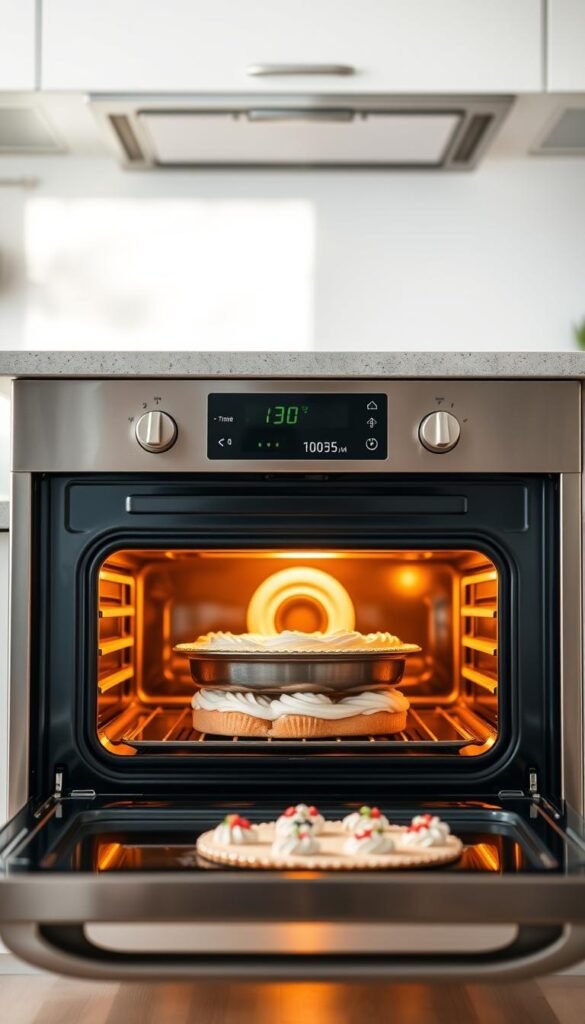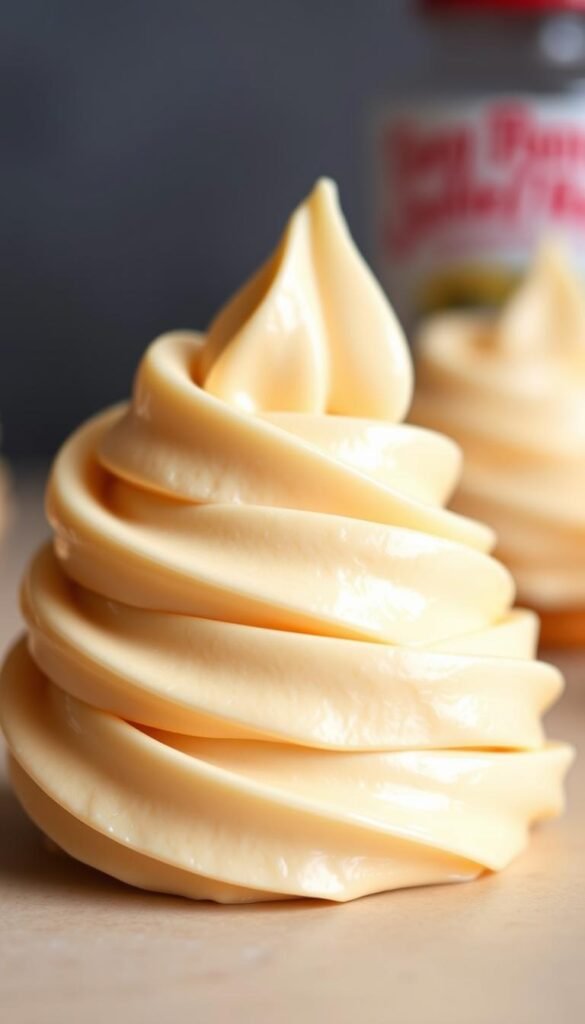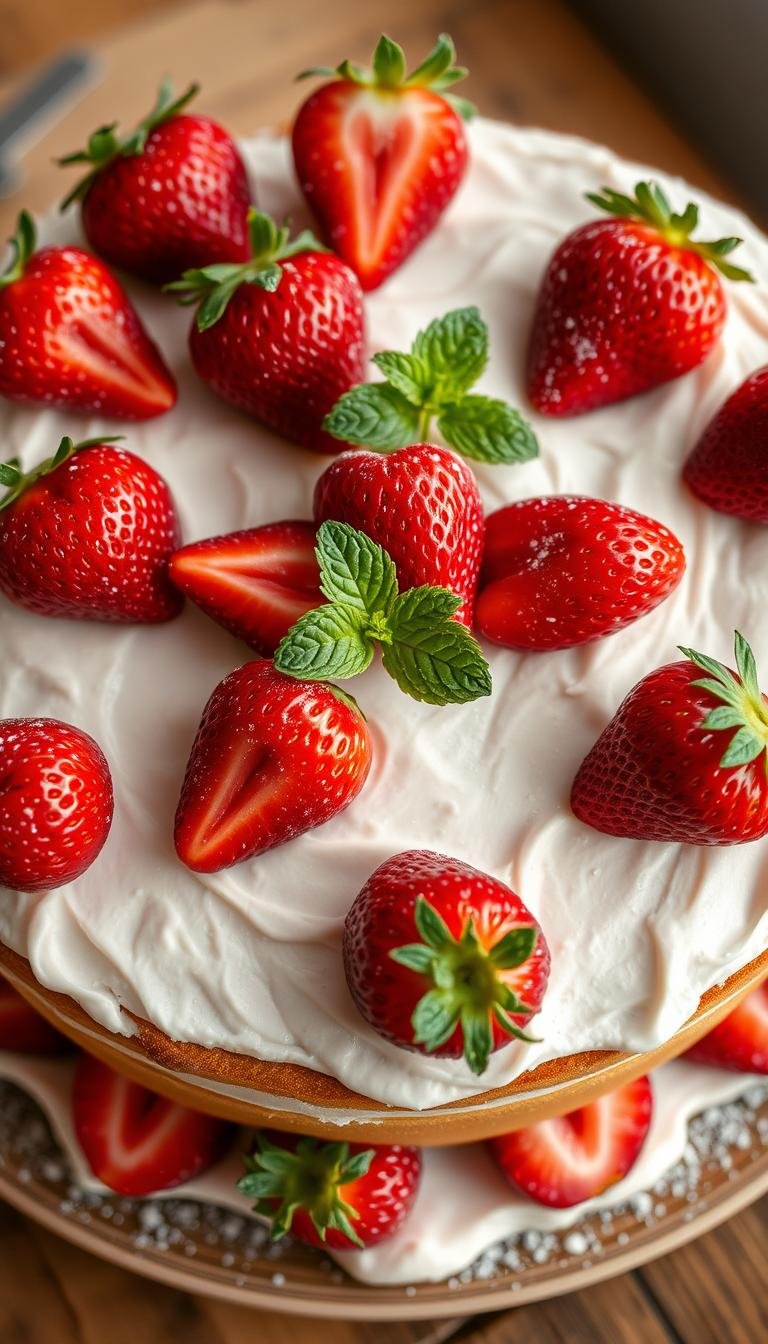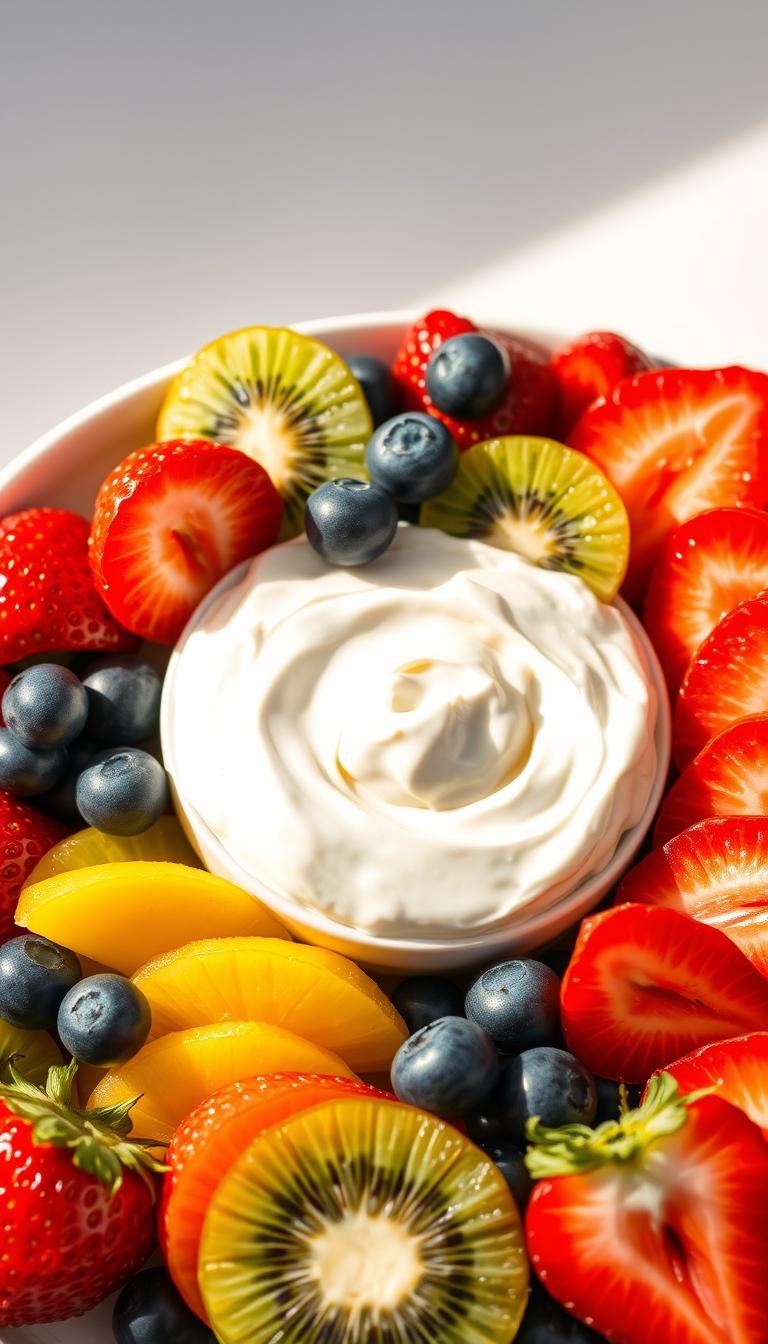Dog Birthday Cake Recipe: Celebrate Your Pet’s Special Day
Surprising fact: nearly half of pet owners say they bake a homemade treat to mark a pet’s special day, proving celebrations matter as much to owners as to their companions.
This Website contains affiliate links. That means I may earn a small commission if you purchase through my links, at no extra cost to you.
This simple, wholesome cake recipe uses pantry-friendly ingredients: 1 cup flour, 1/2 tsp baking soda, 1/8 cup vegetable oil, 1/4 cup natural peanut butter (no xylitol), 1/2 cup applesauce, 1/2 cup pumpkin puree, and 1 egg. It bakes at 350°F for about 25–30 minutes until a toothpick comes out clean and the top springs back.
Why these ingredients? Natural peanut butter adds aroma, applesauce or pumpkin supplies moisture, and a small fat amount gives structure without excess. For frosting, blend 1/2 cup plain Greek yogurt with 1/4 cup peanut butter or try a low-fat mashed potato “buttercream.”
Keep safety first: avoid peanut butter with xylitol, choose unsweetened applesauce and pure pumpkin (not pie mix), and serve portions as treats, not meals.
Key Takeaways
- Uses pet-safe ingredients and basic pantry staples.
- Bakes at 350°F for about 25–30 minutes; test with a toothpick.
- Peanut butter and pumpkin add flavor and moisture.
- Simple yogurt-peanut butter frosting refrigerates well.
- Recipe doubles easily for a layer cake or larger party.
Why This Dog Birthday Cake Belongs at Your Pup’s Party
This festive treat looks like a real party centerpiece while staying fully tailored to canine nutrition. The sponge mimics a light carrot-style loaf, using shredded carrot, pumpkin or applesauce for moisture instead of added sugar.
Peanut and pumpkin drive aroma and flavor that draw dogs in, so you get that irresistible scent without sugary icing. The recipe keeps added sugar low and controls fat to avoid stomach upset.
Frosting options let you choose presentation and profile. A quick yogurt–peanut spread is creamy and fridge-friendly. For a pipeable, low-fat finish, try whipped mashed potato lifted with plain yogurt for a buttercream look.
Fiber from pumpkin and carrot supports digestion while purees and oil keep slices moist and easy to serve. Single-layer or multi-layer builds scale from intimate treats to a small pup party.
- Real “cake” appearance with pet-safe ingredients
- Strong scent appeal from peanut and pumpkin, not sugar
- Frosting choices for texture and lower fat
Dog Birthday Cake Ingredients & Tools
Start by laying out measured ingredients and the pans you’ll need for smooth baking. This saves time and helps you follow the recipe with confidence.
Wholesome additions
Core ingredients: 1 cup flour, 1/2 tsp baking soda, 1/8 cup oil, 1/4 cup natural peanut butter, 1/2 cup pumpkin puree or applesauce, and 1 egg. Use all-purpose or whole wheat flour depending on the texture you want.
Frosting choices
Simple, dog-friendly frostings include a yogurt peanut butter blend, a whipped potato mixed with yogurt for a pipeable finish, or unsweetened whipped cream if tolerated. Greek yogurt adds probiotics and creamy body.
Tools & pans
Preheat the oven to 350°F. Use an 8-inch round or square pan, line with parchment, and have mixing bowls, measuring cups, a rubber spatula, and a wire rack ready.
| Choice | Function | Best option |
|---|---|---|
| Flour | Structure and crumb | All-purpose or whole wheat (1 cup) |
| Moisture | Keeps slices soft | Pumpkin puree or applesauce (1/2 cup) |
| Leavening | Light rise | Baking soda (small amount) |
| Frosting | Finish and flavor | Yogurt peanut butter or whipped potato |
Dog Birthday Cake: Step-by-Step Instructions
Follow a clear routine—from pan prep to cooling—to get consistent results every time. The steps below keep the process simple and predictable so your treat turns out moist and easy to frost.
Prep and pan
Preheat oven to 350°F. Grease an 8-inch pan and line with parchment for an easy release. Having tools and measured ingredients ready saves time and reduces errors.
Mix the batter
Whisk dry ingredients in one bowl and combine wet ingredients in another. Gently fold the wet into the dry and stop as soon as the batter is uniform to avoid a tough crumb.
Bake minutes and doneness
Smooth the batter in the pan so it bakes level. Bake 20–30 minutes, checking early. A toothpick inserted in the center should come clean and the top should spring back when done.
Cool, layer, and frost
Let the cake rest a few minutes, then transfer to a wire rack to cool fully. For a layer result, bake in two pans or split one cooled cake horizontally. Prepare frosting while the cakes cool; apply carefully once surfaces are stable.

| Step | What to do | Why it matters |
|---|---|---|
| Preheat | 350°F, grease and line pan | Ensures even rise and easy release |
| Mix | Dry and wet separately, then combine | Prevents overmixing and tough crumb |
| Bake | 20–30 minutes, check with toothpick | Correct bake minutes = moist, cooked center |
| Cool | Wire rack; chill for layers | Prevents soggy frosting and cleaner slices |
Frosting Ideas Your Dog Will Love
A thoughtful finish balances richness with digestibility for small guests. Pick a topping that adds flavor and texture without overwhelming the slice.

Yogurt Peanut Butter Frosting
Creamy, probiotic-rich, and very easy to spread. Mix 1/2 cup plain Greek yogurt with 1/4 cup natural peanut butter until smooth. Add a splash of water if the texture is too thick.
Tip: Refrigerate the frosted cake so the topping firms and keeps its shape.
Fluffy Whipped Potato Yogurt “Buttercream”
For pipeable borders and rosettes, whip very soft mashed potato with a few tablespoons of yogurt until light. Use while warm so it pipes cleanly, then let it set as it cools.
Advantage: This blend gives a realistic butter look with less fat than rich spreads.
Light Whipped Cream Topping
Beat unsweetened heavy cream to stiff peaks and spread a thin layer for a light finish. This simple topper is dog-approved but should be used sparingly for pups with dairy sensitivity.
- Balance aroma: yogurt brings tang and probiotics; peanut provides enticing scent.
- Consider a tiny spoonful of pumpkin for color and mild flavor without thickening too much.
- Always refrigerate yogurt- or cream-based frostings and serve portions promptly.
| Frosting Type | Texture | Best Use |
|---|---|---|
| Yogurt peanut butter | Creamy, spreadable | Quick finish; refrigerate to set |
| Potato-yogurt “buttercream” | Fluffy, pipeable | Decorative borders and swirls |
| Whipped cream | Light, airy | Thin top layer; use sparingly |
Safety, Nutrition, and Ingredient Notes
Smart ingredient checks help you keep treats wholesome and safe. Below are clear, practical notes to help you choose the best items for a successful dog birthday treat without risking health issues.
Peanut Butter Safety
Always read the label. Avoid any peanut butter containing xylitol or birch sugar because these are highly toxic.
Choose natural, unsweetened peanut butter to keep added sugar low and to control fat content in the final slice.
Smart Swaps for Moisture and Texture
Use pumpkin puree or unsweetened applesauce to add moisture and mild sweetness without refined sugar.
Banana makes a softer crumb and adds aroma. Pick whole wheat flour for extra fiber and nutrients, or all-purpose flour for a lighter crumb.
Serving Size by Size and Activity
Treats are occasional—serve small portions based on weight and exercise level.
Keep protein and fat modest; fiber and vitamin-rich purees like pumpkin add benefits but should not replace meals.
Allergies and Vet Guidance
Monitor for reactions when introducing new ingredients. If your pet has known allergies or health issues, consult a veterinarian first.
“When in doubt, check with your vet—recipes are fun, but safety comes first.”
| Concern | Best Practice | Why |
|---|---|---|
| Leavening | Use a small measured amount of baking soda | Gives rise without excess gas |
| Dairy sensitivity | Swap yogurt and milk for water or potato frosting | Reduces risk of stomach upset |
| Labels | Check for xylitol and added sugar | Prevents toxic exposure and extra sugar |
- Storage: Refrigerate a frosted treat and serve within a few days.
- Portion: Treats complement a balanced diet and are not a meal replacement.
- Leaveners: Soda and similar agents should be used sparingly to avoid excess rise.
Decorating, Serving, and Storage Tips
Small details—like toppers and neat slices—turn a homemade treat into a party centerpiece. These finishing steps help your dessert look and travel well.
Fun toppers
Add easy charm with mini store-bought bones or bite-size dog treats as “sprinkles.”
Homemade peanut butter or pumpkin bites also make a pretty garnish and double as sample treats for guests.
Party-ready presentation
For a bakery-style display, build a two-layer cake using two 8-inch pans or split a cooled pan horizontally.
Sandwich with frosting, smooth the sides, and use a small piping bag with potato-yogurt frosting for borders that hold after cooling.
Storage and make-ahead
Refrigerate a frosted dog cake and plan to serve within 2–3 days for best texture and safety.
If you bake ahead, wrap cooled layers tightly and frost closer to party time. Keep a spare cup of frosting and an offset spatula for quick touch-ups.
- Slice with a warm, sharp knife, wiping between cuts for tidy portions.
- Pre-cut servings to avoid overindulgence and space offerings a few minutes apart.
- If it’s warm outside, serve quickly and return leftovers to the fridge.
Conclusion
Wrap up your baking day with a few small steps that make a big difference at serving time. Measure and mix carefully, preheat oven to 350°F, and bake 20–30 minutes until the center tests clean. These simple actions protect texture and flavor.
Focus on safe ingredients such as natural peanut butter and pumpkin or applesauce puree, choose a light yogurt or whipped potato frosting, and portion by size and activity to avoid excess calories.
Refrigerate a frosted treat, cover leftovers, and enjoy within a few days. With tidy slices, neat decorations, and sensible portions, this homemade cake recipe turns an ordinary day into a memorable celebration for dogs and their people.






